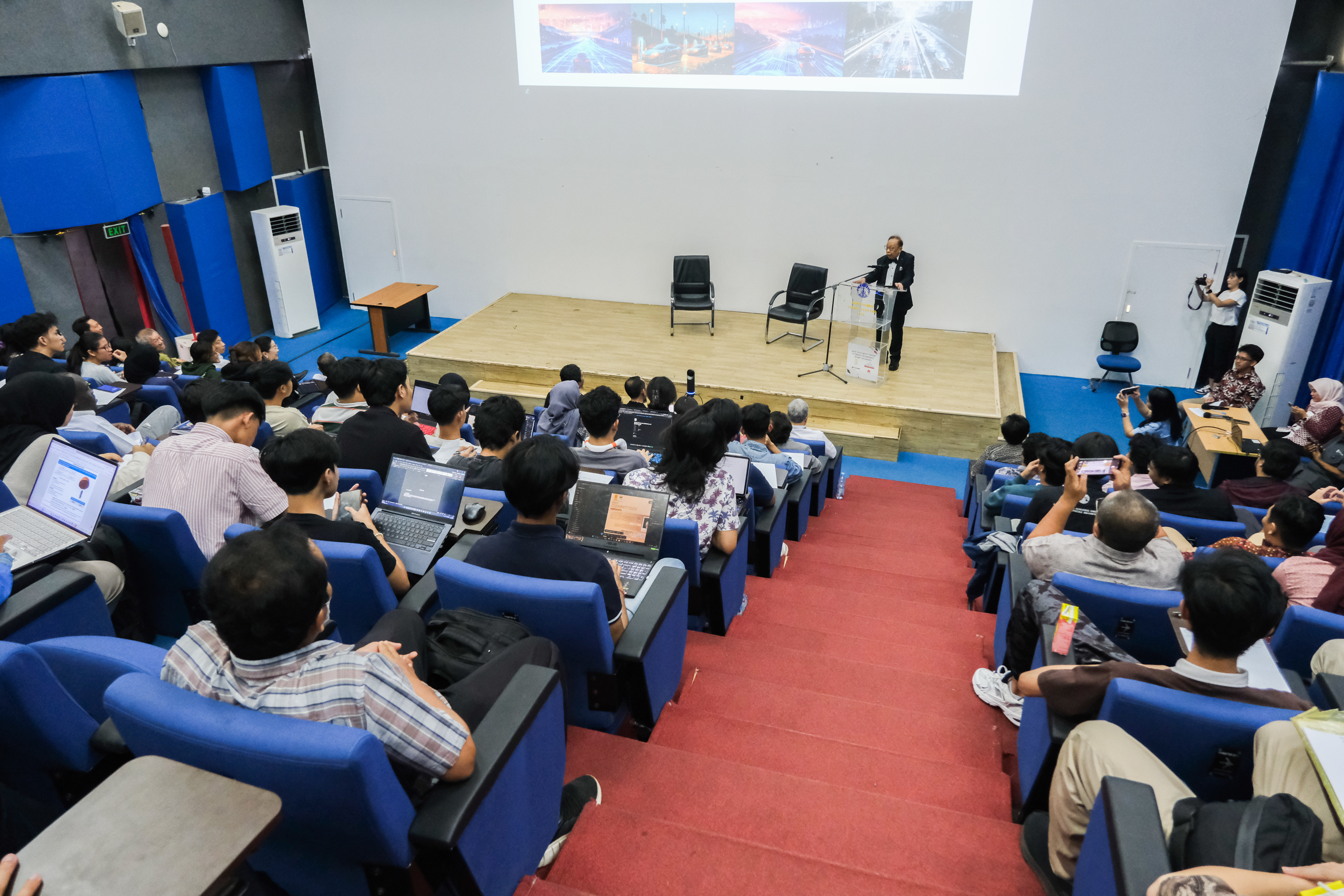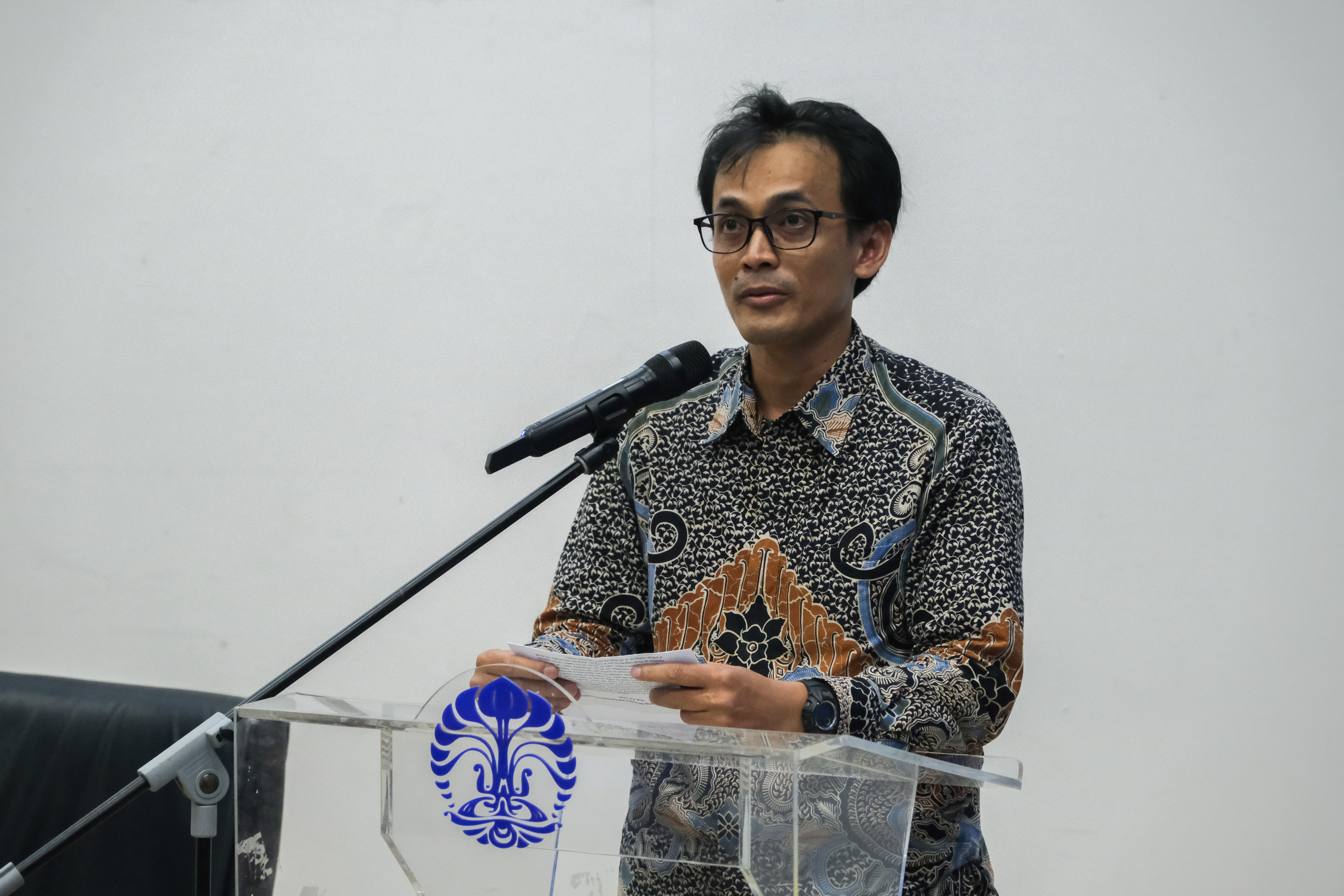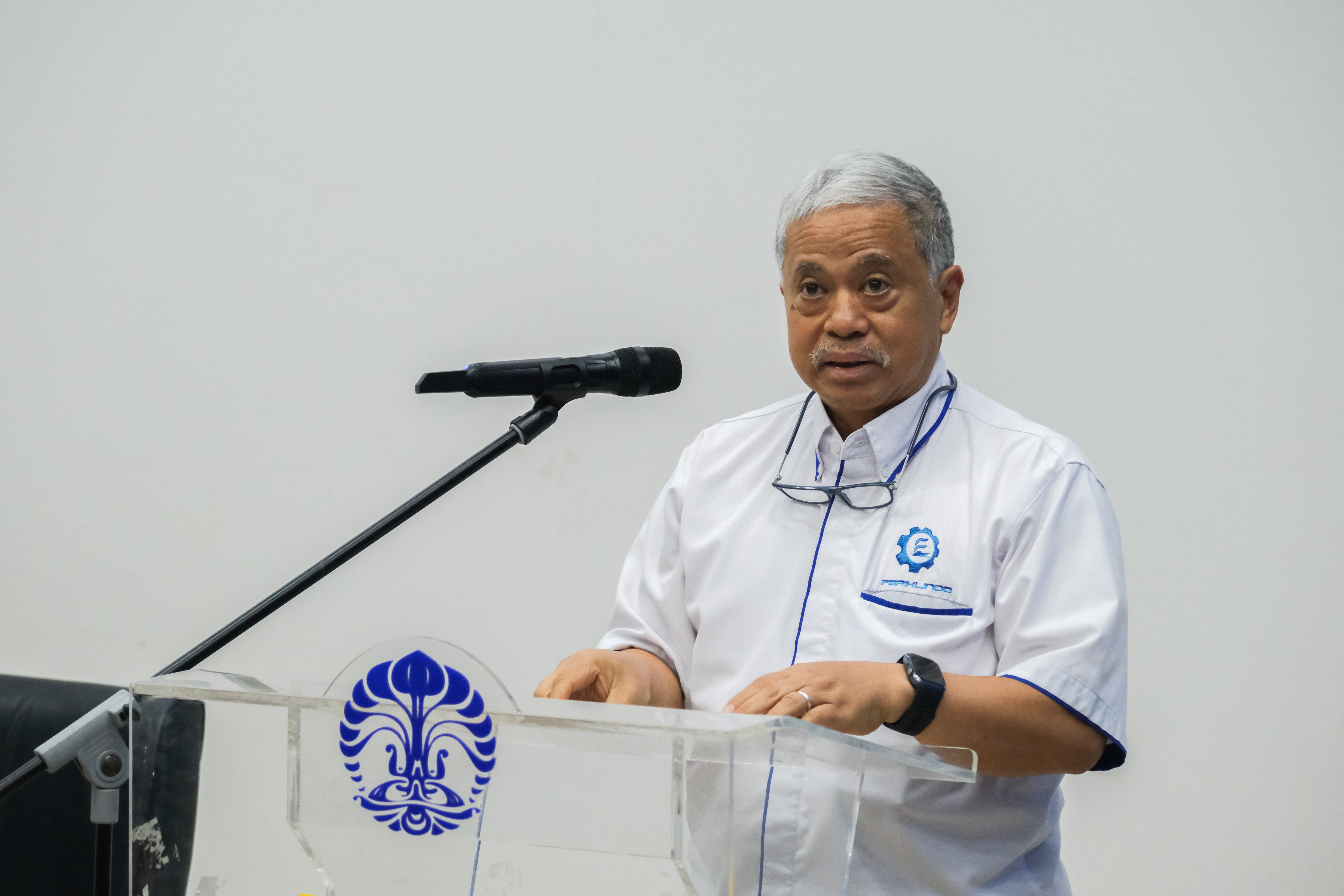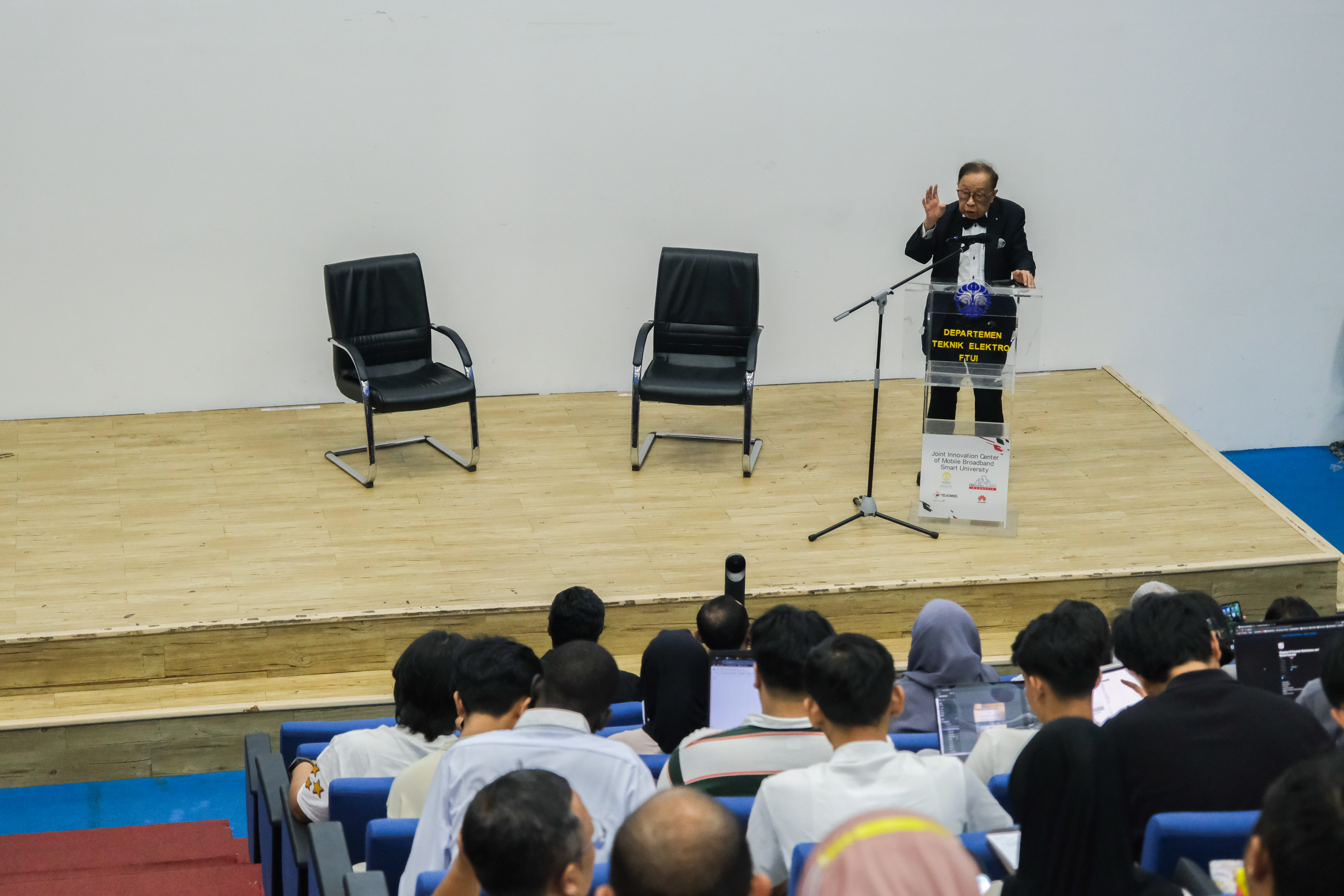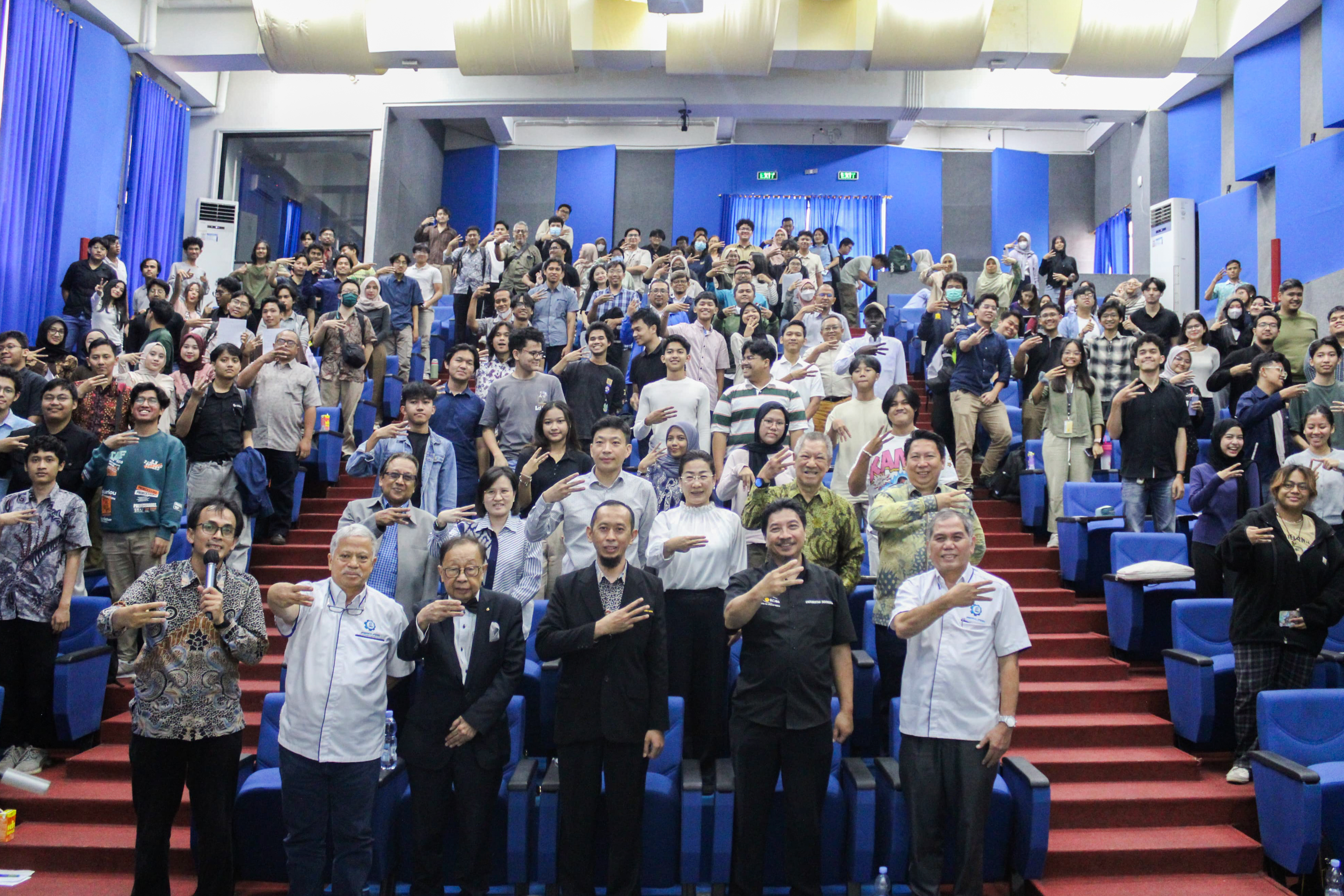The Department of Electrical Engineering, Faculty of Engineering, Universitas Indonesia (DTE FTUI) held a public lecture featuring Professor C.C. Chan as the guest speaker. The event occurred on Monday (April 28) at the Auditorium, 4th Floor, Mochtar Riady Plaza Quantum (MRPQ) Building. Professor C.C. Chan’s visit resulted from the collaboration between the Indonesian Electric Vehicle Industry Association (Periklindo) and DTE FTUI. He presented a lecture titled “The New Journey of the Energy and Automotive Revolution.”
“Today, we are honored to host a visionary academic, Professor C.C. Chan, widely known as the ‘Father of Asian Electric Vehicles.’ His dedication to energy and automotive technology has inspired many and shaped the future of sustainable transportation,” said the Head of the Department of Electrical Engineering, Prof. Dr.Eng. Arief Udhiarto, S.T., M.T., IPU., in his opening remarks.
According to Prof. Arief, who is also the Chair of the Indonesian Electrical Engineering Higher Education Forum (FORTEI), the lecture’s theme is timely and highly significant. As Indonesia and the world face pressing energy sustainability challenges and climate change, this discussion is relevant to academics, industry professionals, and policymakers. “Professor C.C. Chan’s insights will undoubtedly illuminate the path to innovation and collaboration,” he added.
Mr. Prabowo Kartoleksono, Vice Chair of Research and Development of Periklindo, also delivered a welcome speech. “We must prepare our students and researchers to follow and lead innovation, emerging technologies, and beyond. Innovation must be rooted in relevance, globally competitive, and locally impactful,” said Prabowo.
He further emphasized that Periklindo is ready and open to collaborate with Universitas Indonesia. He believes industry and academia must strive to work together as agents of change for Indonesia’s economic and industrial future. “This is to ensure that Indonesia is not only a consumer of new technology, but also a creator and leader in innovation,” he remarked.
Prof. Dr. Ir. Feri Yusivar, M.Eng., introduced the Research Center for Advanced Vehicle (RCAVe) on this occasion. Prof. Feri explained that RCAVe offers a multidisciplinary collective approach to understanding the impact of electrification on the future of vehicles and mobility. Research areas include electric vehicles, charging infrastructure, battery recycling, autonomous vehicles, and analysis of the economic and business model innovations in future automobility.
The main session began with moderator Dr. Faiz Husnayain, S.T., M.T., M.Sc., Ph.D., introducing Prof. C.C. Chan. Holding degrees of BSc, MSc, PhD, HonDSc, and HonDTech, Prof. Chan is an Honorary Professor and former Head of the Department of Electrical and Electronic Engineering at the University of Hong Kong. He is also the founder of the International Academicians Science and Technology Innovation Centre and the World Electric Vehicle Association. At 88, he remains actively involved in teaching at the University of Hong Kong.
Kicking off the lecture, Prof. C.C. Chan stated that for an innovation to succeed, it must meet several elements: uniqueness, optimization, and disruptive breakthroughs. He encouraged academics to keep asking questions, emphasizing that science is not about final answers, but about cultivating a mindset to ask better questions.
Delving into the topic of the energy revolution, Prof. Chan outlined key global challenges: sustainability, affordability, and reliability. He proposed three core solutions to these issues—low carbonization, intelligence, and electrification and hydrogen energy development.
He also discussed the automotive revolution, which he described as occurring in two stages: first, electrification, and second, the integration of intelligence and internet connectivity. His vision for this revolution extends from smart connected vehicles to intelligent transportation, smart cities, and intelligent societies. The theoretical and practical foundation for this development, as proposed by Prof. Chan, is the Integration of Four Networks and Four Flows. These include the integration of the energy network, information network, transportation network, and humanity network, along with the flows of energy, information, materials, and value. Through this model, proactive human initiatives can be synergized with energy, information, and mobility revolutions.
Prof. Chan concluded his lecture with the following closing thought:
“In the last century, our focus was on advancements in the physical world. In the early part of this century, we have focused on the development of cyberspace and the rise of digitalization. However, we must continue our disruptive thinking and deeply integrate the physical, cyberspace, and human worlds. We must effectively transform data into information, knowledge, and intelligence to solve complex problems. Technology alone cannot solve complex issues or face new challenges in the real world. The human world, physical world, and cyberspace must be deeply integrated.”
Dean of the Faculty of Engineering UI, Prof. Kemas Ridwan Kurniawan, S.T., M.Sc., Ph.D., also delivered remarks during the event. “This lecture represents our commitment to fostering knowledge exchange and collaboration. It is an opportunity to learn from decades of pioneering work, bridging traditional energy systems with cutting-edge smart technologies. Together, we aim to prepare future generations to drive change, uphold sustainability values, and embrace revolutionary ideas,” said Prof. Kemas.
***
Public Communication Office
Faculty of Engineering Universitas Indonesia

